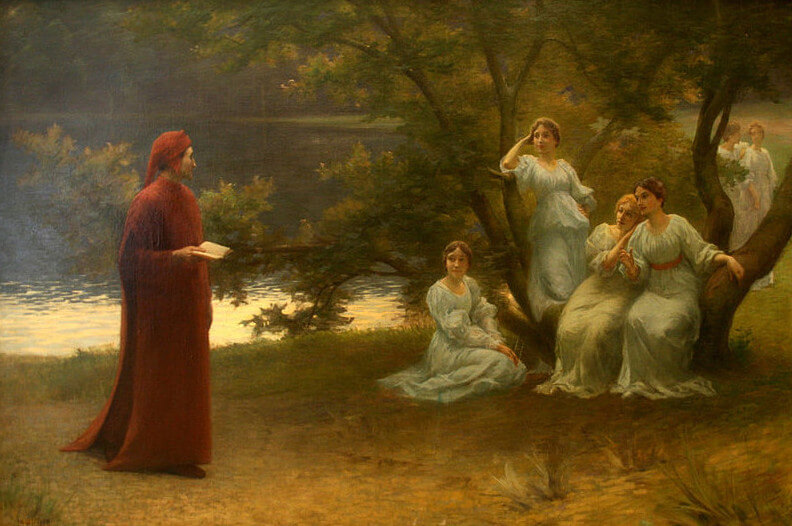The Moral Force of Beauty
The beauty of who God is and what He has done creates delight and desire and love, which in turn constrains us to act.

Our God is beautiful. In the ultimate sense, He is Beauty: the source, summation, and perfection of all that is beautiful. In a practical sense, however, He is beautiful to us: our senses, our hearts, and our sentiments. The Hebrew word used for “beauty” in Psalm 90:17 is no’am, which means (amongst other things) someone or something that creates delight to the beholder. It is not beauty in the void but rather beauty beheld, gazed upon, contemplated, and desired (Ps. 27:4). It is not a static thing but a dynamic thing, because it drives us to do something: something to please it, something to make it proud. Thus, our delight in God’s “delightfulness” is what establishes the work of our hands.
The parallels to romantic love are impossible to ignore. I’m not referring to mere lust, or some affectionate infatuation (i.e., a “crush”), but a true and deep, soul stirring and shattering reaction caused by one who can only be described as “beloved,” the one who is loved. For the beauty of the beloved, the young man will make a fool of himself with sappy poems or silly treats or stupid feats; he will exhaust himself in charming idiocy. For the beauty of the beloved, the older man will not leave her for any other; who she is makes him whole. It’s like that great American philosopher and iconic film character Peter Parker (played by Tobey Maguire) said in Spider-man about looking into Mary Jane’s eyes: “You know what kind of man you wanna be.”
Here he echoes Dante when—in canto 18 of “Paradiso”—he looked into the face of Beatrice: “…as I gazed on her, / affection found no room for other wish. / While the everlasting pleasure, that did full / on Beatrice shine…from her fair countenance my gladdened soul / contended, vanquishing me with a beam / of her soft smile….” (Of course, I can only speak for men, since I am one by the accident of birth. However, I am sure that women can think of their own parallels to the theme: the beauty of the beloved establishes the work of your hands.)
This is not about outward appearance; this is about delightfulness, which is something more all-encompassing. God is a Spirit and has no outer form, and yet He creates beauty in those who behold Him. The mystery of that paradox is deep, but the point here is that beauty is far greater than outward show; it is about finding deep, abiding joy in someone because of who they are. Everyone who’s ever been and is still in love knows what I’m talking about: it’s as if the other person fills up the whole room. Not necessarily because of their personality or their physical shape, but because it’s them. They are beautiful; you cannot reduce them to one thing, for to reduce them is to lose them and make an idol out of one of their many facets.
This is what makes beauty, true delightfulness, so important. Beauty has moral force, for good or ill. In the best case, it will create true love, which will drive you towards acts of true goodness. So in Paradise Lost, Satan himself is struck “stupidly good” when he sees the unfallen beauty of Eve (IX.455-66). In the worst case, false beauty (evil and error disguised as beauty) will create perverted love, which will drive you towards destructive ends. So in “Book I” of The Faerie Queene, Redcross is turned from the journey of holiness by the false beauty of Duessa. In either case, beauty has great moral power: it shapes our sentiments, which in turn shapes our actions, which in turn shapes our culture (esp. our arts and entertainment), which in turn shapes us further. It is an inevitable and valuable as well as perilous cycle, especially if it falls into the wrong hands: moral milksops with shallow views of everything, or moral perverts who have exchanged beauty for ugliness.
For the Christian, the beauty of God is our moral force. The beauty of who He is and what He has done creates delight and desire and love, which in turn constrain us to do (II Cor. 5:14-15; John 14:15). We do not “do” out of duty or fear but love, love for our beloved, the Beloved, who has called us His children and brothers and sisters and friends and lovers and every affectionate and intimate name and category that we have.
In the name and for the love of our Beloved, let us go and do. Let the beauty of the Lord our God be upon us, and let it establish the work of our hands. Let our works be acts of goodness and compassion to the outcast and suffering. Let our works be acts of truth and reason against the skeptic and the madman. And (perhaps above all) let our works be acts of beauty and wonder and glory in our culture, filling it with songs and books and works of light. Let it season like salt our goodness and truth. They too must be acts of beauty, for the way to a man or woman’s mind, soul, and body is through their heart.
Jon Vowell
Jon Vowell is a professor at the Center for Western Studies in Memphis, TN and a doctoral candidate at the University of Memphis.










